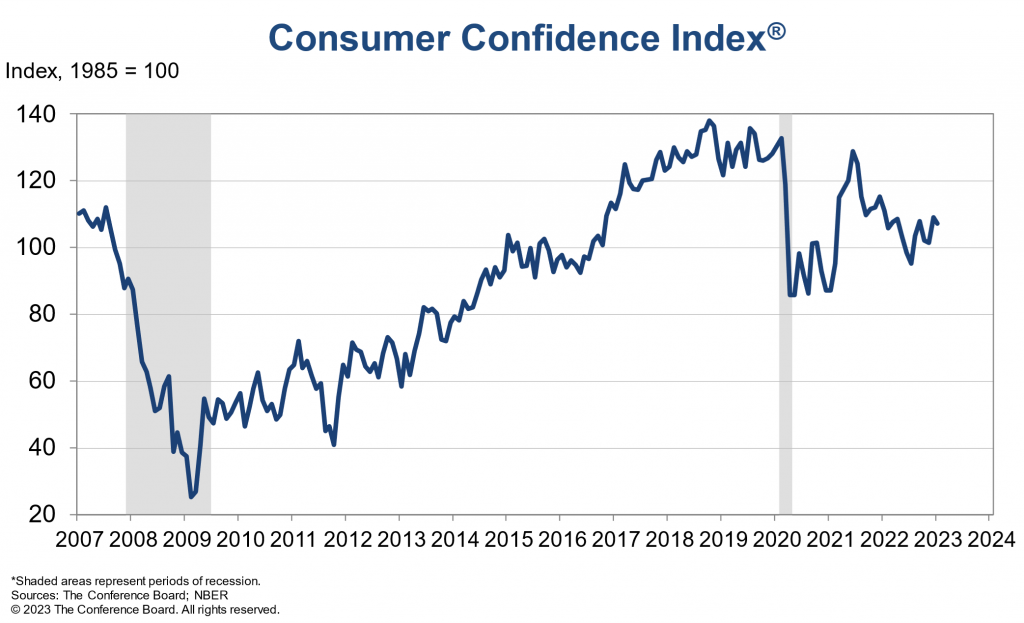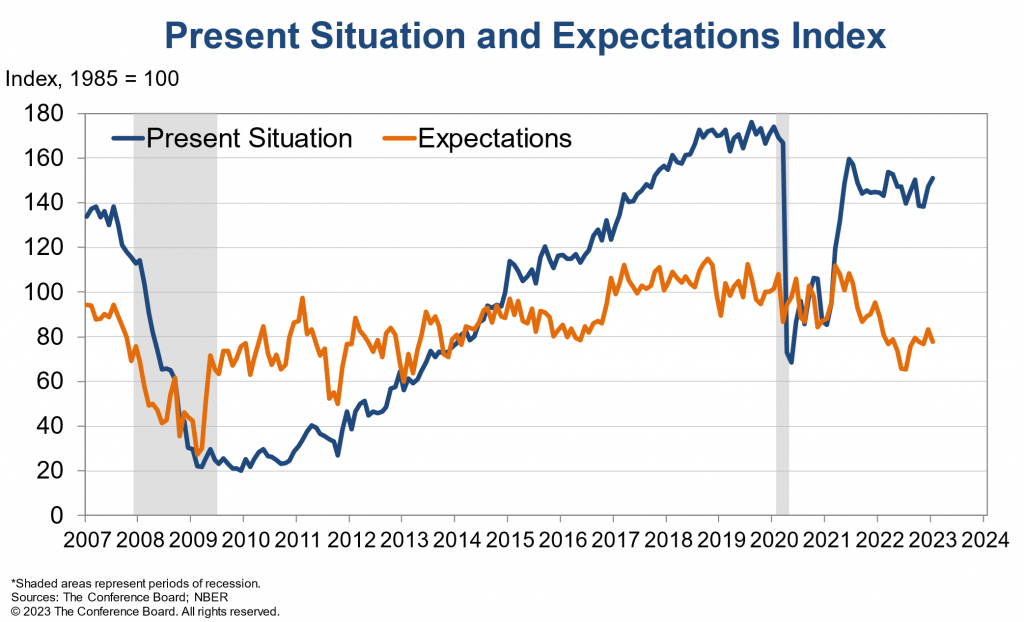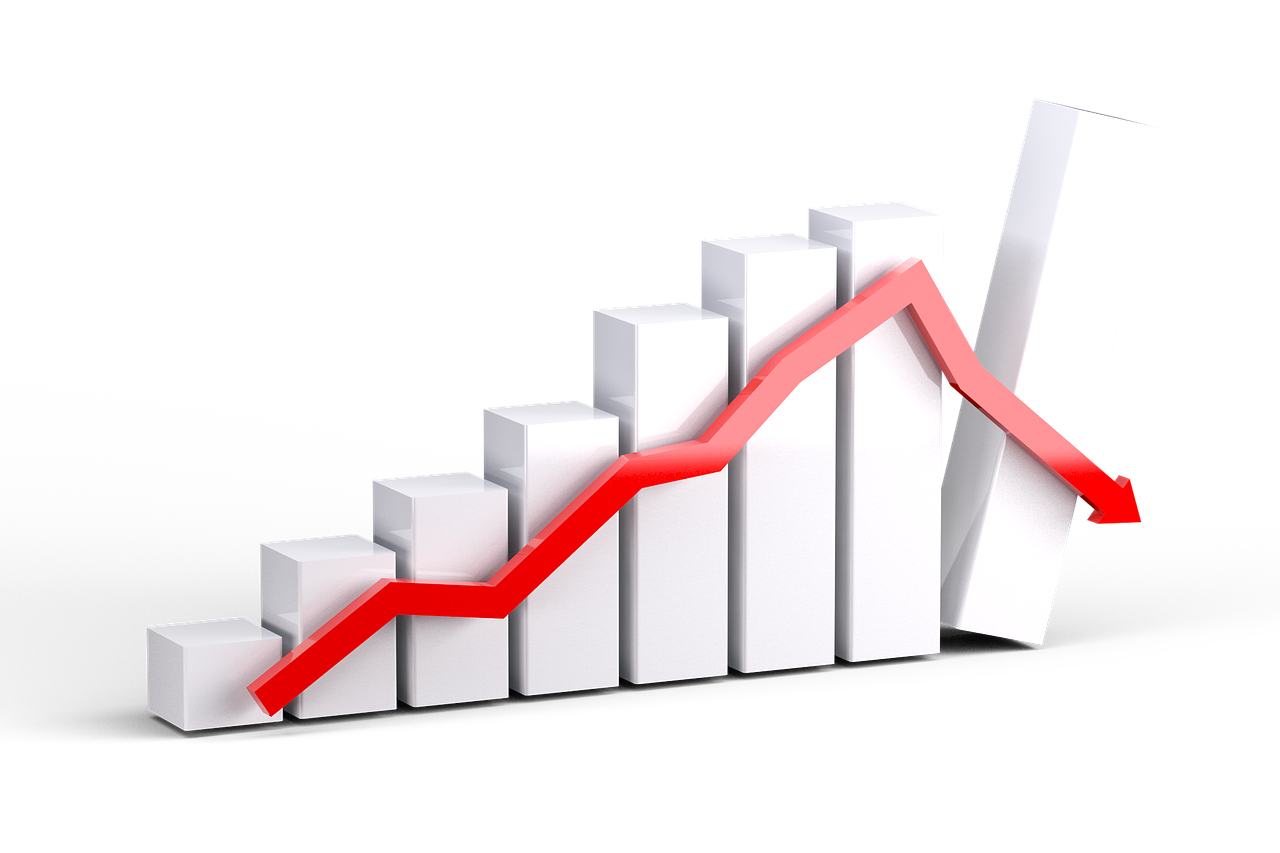The Conference Board Consumer Confidence Index decreased in January following an upwardly revised increase in December 2022. The Index now stands at 107.1 (1985=100), down from 109.0 in December (an upward revision). The Present Situation Index—based on consumers’ assessment of current business and labor market conditions—increased to 150.9 (1985=100) from 147.4 last month.
The Expectations Index—based on consumers’ short-term outlook for income, business, and labor market conditions—fell to 77.8 (1985=100) from 83.4 partially reversing its December gain. The Expectations Index is below 80 which often signals a recession within the next year. Both present situation and expectations indexes were revised up slightly in December.
“Consumer confidence declined in January, but it remains above the level seen last July, lowest in 2022,” said Ataman Ozyildirim, Senior Director, Economics at The Conference Board. “Consumer confidence fell the most for households earning less than $15,000 and for households aged under 35.”
“Consumers’ assessment of present economic and labor market conditions improved at the start of 2023. However, the Expectations Index retreated in January reflecting their concerns about the economy over the next six months. Consumers were less upbeat about the short-term outlook for jobs. They also expect business conditions to worsen in the near term. Despite that, consumers expect their incomes to remain relatively stable in the months ahead. Meanwhile, purchasing plans for autos and appliances held steady, but fewer consumers are planning to buy a home—new or existing. Consumers’ expectations for inflation ticked up slightly from 6.6 percent to 6.8 percent over the next 12 months, but inflation expectations are still down from its peak of 7.9 percent last seen in June.”

Present Situation
Consumers’ assessment of current business conditions improved in January.
- 20.2% of consumers said business conditions were “good,” up from 19.2%.
- 19.2% said business conditions were “bad,” down from 19.7%.
Consumers’ appraisal of the labor market was also more favorable.
- 48.2% of consumers said jobs were “plentiful,” up from 46.4%.
- 11.3% of consumers said jobs were “hard to get,” down from 11.9%.

Expectations Six Months Hence
Consumers became more pessimistic about the short-term business conditions outlook in January.
- 18.6% of consumers expect business conditions to improve, down from 20.9%.
- 21.6% expect business conditions to worsen, up from 19.9%.
Consumers were less upbeat about the short-term labor market outlook.
- 17.9% of consumers expect more jobs to be available, down from 20.0%.
- 20.1% anticipate fewer jobs, up from 18.7%.
Consumers’ short-term income prospects held steady.
- 17.2% of consumers expect their incomes to increase, compared to 17.3% last month.
- 13.4% expect their incomes will decrease, similar to 13.3% last month.
The monthly Consumer Confidence Survey, based on an online sample, is conducted for The Conference Board by Toluna, a technology company that delivers real-time consumer insights and market research through its innovative technology, expertise, and panel of over 36 million consumers. The cutoff date for the preliminary results was January 24.
Thanks for reading CPA Practice Advisor!
Subscribe Already registered? Log In
Need more information? Read the FAQs
Tags: Accounting




